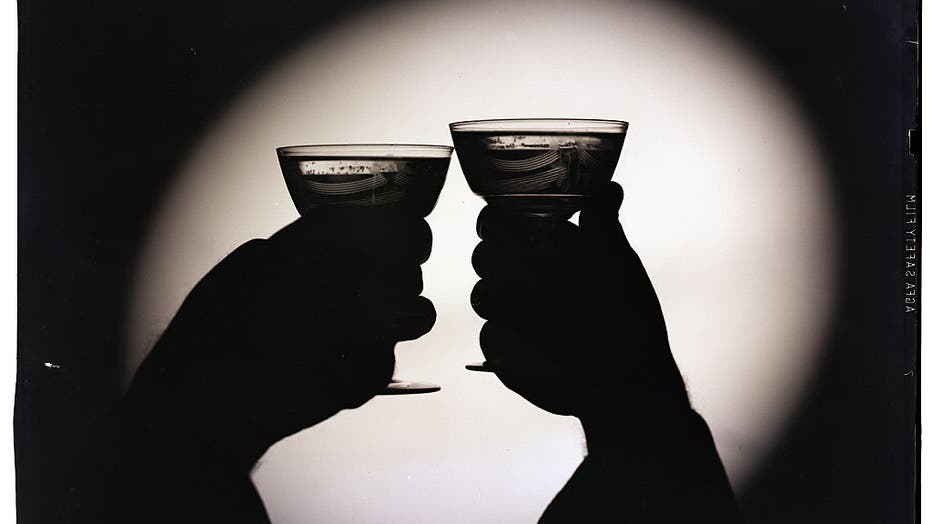Champagne, white wine may lower sudden cardiac arrest risk, new study suggests

U.S. surgeon general wants cancer warnings on alcohol
The U.S. Surgeon General Vivek Murthy is suggesting that alcoholic beverages should have labels that warn people of the risk of cancer. LiveNOW's Austin Westfall discusses it further with Dr. Erika Schwartz, a patient advocate and prevention expert.
LOS ANGELES - Sudden cardiac arrest remains one of the most fatal health events, claiming over 436,000 American lives each year. But new research suggests some surprising factors — including drinking champagne and white wine — could help lower the risk.
A study published in the Canadian Journal of Cardiology identified 56 modifiable factors associated with SCA, based on health data from more than 500,000 people in the United Kingdom. The findings highlight the potential for lifestyle choices to play a major role in preventing this often-deadly condition.
How champagne and white wine may help
The backstory:
The researchers conducted an exposome-wide association study, analyzing hundreds of environmental and lifestyle exposures without pre-set assumptions. After further validation through Mendelian randomization analysis, they found that moderate consumption of champagne and/or white wine was causally linked to a lower risk of sudden cardiac arrest.
While prior studies have long focused on red wine for heart health, this research challenges that narrative. An accompanying editorial by University of Toronto and Queen’s University experts called the findings "intriguing," suggesting the heart benefits of alcohol may be "more complex than previously assumed."
Higher fruit intake and regular computer use (potentially reflecting higher education or cognitive engagement) were also found to have protective effects.
Big picture view:
The study emphasized that 40% to 63% of sudden cardiac arrests could theoretically be prevented if unfavorable profiles were improved. Some of the most significant risk factors linked to higher SCA risk included:
- High systolic blood pressureHigh body mass index (BMI)
- Greater arm fat mass
- Sedentary behavior
- Poor sleep habits
- Feelings of persistent discouragement or low mood
- Low education levels
In contrast, positive behaviors — like maintaining a healthy weight, eating more fruits, and engaging in regular social and mental activities — were associated with lower risk.
Lifestyle improvements, the researchers concluded, represent the most impactful and practical avenue for prevention.
The study’s champagne and white wine findings arrive amid a larger scientific debate about alcohol’s risks and benefits.

A pair of hands raise champagne coupes in a celebratory toast. A new study suggests that moderate consumption of champagne and white wine may be linked to a reduced risk of sudden cardiac arrest, though researchers caution that more investigation is (Getty Images. )
The U.S. Surgeon General has warned that any alcohol consumption raises cancer risk. Yet recent research has suggested that moderate drinking may improve brain health and social connection, both of which are factors in broader heart health.
Cardiologist Dr. Evan Levine, speaking to the New York Post, cautioned that even moderate drinking can raise blood pressure and cause other heart issues over time. Heavy chronic drinking, he said, can cause "alcohol cardiomyopathy," a potentially fatal weakening of the heart muscle.
In short: while a glass of bubbly might help protect the heart, moderation remains crucial.
What's next:
Researchers stressed that while the findings are significant, questions remain.
The study did not differentiate between out-of-hospital and in-hospital sudden cardiac arrest, and its findings are based largely on white, middle-aged, and older adults in the United Kingdom. Further research is needed to confirm whether these associations hold true across more diverse populations.
Additionally, although moderate white wine and champagne consumption showed a protective effect, scientists caution that alcohol’s overall health impacts are complex — and not risk-free.
The Source: This article is based on reporting from the Associated Press, the study published in the Canadian Journal of Cardiology (April 2025), and additional commentary from The New York Post and other peer-reviewed health sources.

